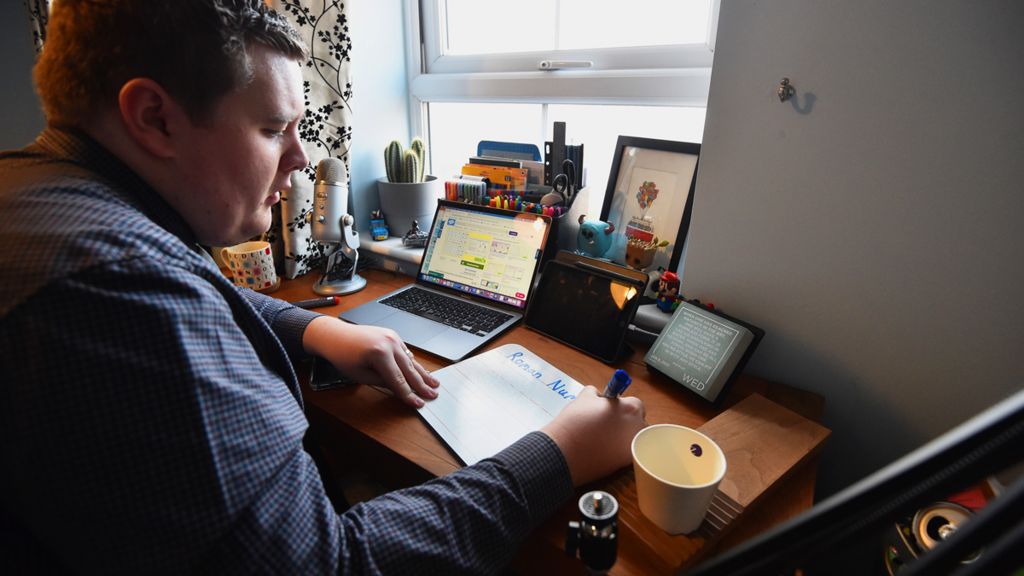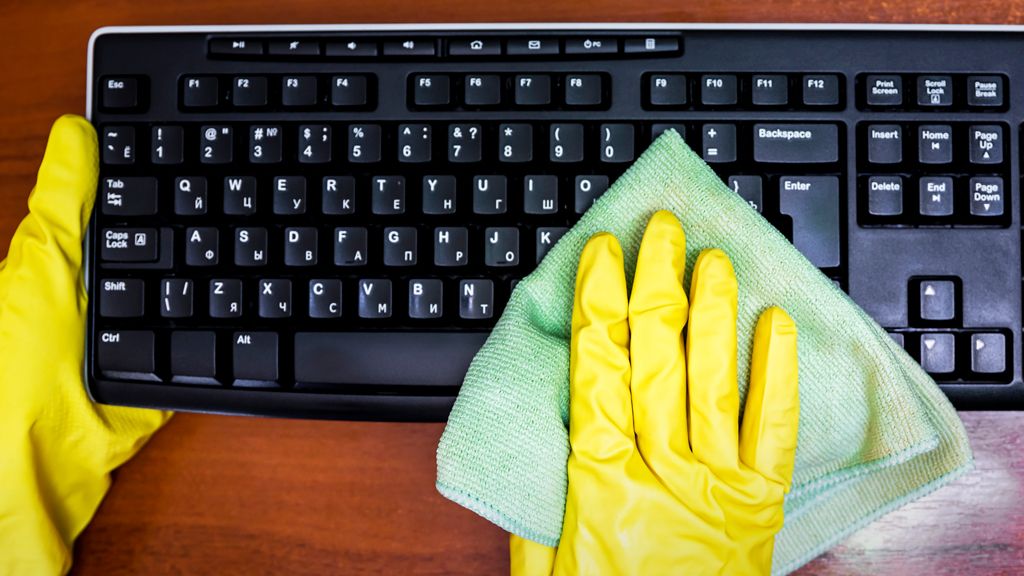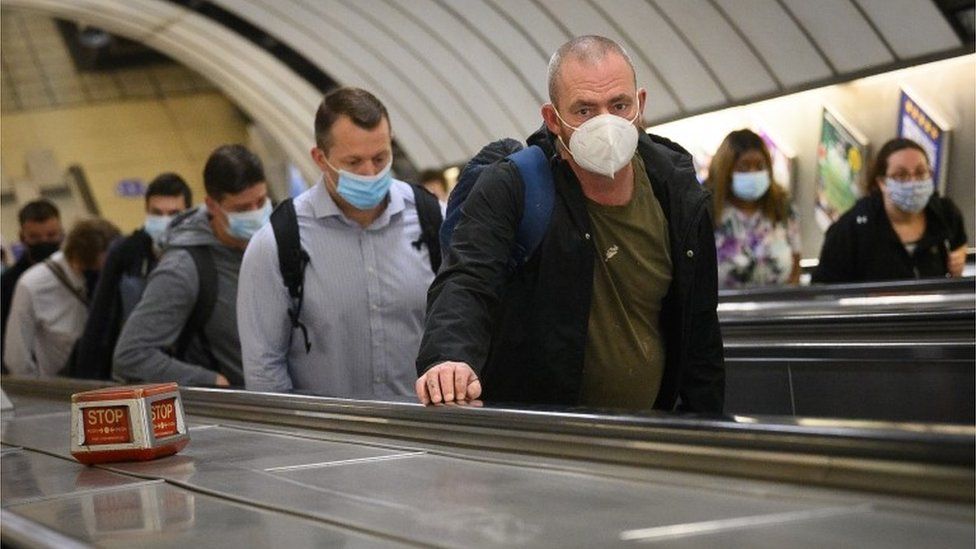As lockdown restrictions ease gradually across the UK, what are the rules about returning to work?

image copyrightGetty Images
Companies have been preparing for workers to return to the office in England – but they may have to wait a bit longer before it can actually happen.
Most remaining coronavirus rules will remain in place until at least mid-July after changes planned for 21 June were delayed.
During the latest pause in lockdown easing, everyone who can work from home should still do so.
If your job can’t be done from home, you can travel into the workplace.
However, you shouldn’t go to work if:
- You’re self-isolating because you have coronavirus symptoms
- You’ve been in contact with someone who has tested positive
- You’re in quarantine after travelling abroad
The government wants to help companies which have suffered during lockdown, including those in city centres which rely on office workers.
It’s also keen to cut the cost of paying furloughed staff by encouraging businesses to reopen. More than £100bn has been spent on support for jobs.
In England, most people should keeping working at home until final restrictions are removed.
That now won’t happen on 21 June because of concerns about the Delta variant first identified in India.
Even when the lifting of restrictions does happen, life in the workplace may be affected the findings of a review into social distancing.

image copyrightGetty Images
You can ask to keep working from home, but that doesn’t mean your employer has to agree.
The Chartered Institute for Personnel and Development (CIPD), which represents HR professionals, says decisions will depend on factors including individual circumstances and the type of job.
It says: “Employers have a duty of care to all their staff and [must] treat people reasonably and fairly… and be as flexible as possible when dealing with any concerns people have.”
However, lots of companies have already said they expect to have a mixture of staff in the office and at home. Several firms have said that workers will be able to decide where they’re based.
That’s partly because the pandemic has shown that home-working can be effective, but also because shutting or reducing office space can save money.
In England, the current guidance says employers should complete a Covid risk assessment, and take steps to prevent transmission, including:
- Minimising unnecessary visitors
- Ensuring 2m (6ft) social distancing, or 1m social distancing with additional precautions
- Frequent cleaning
- Extra hand washing facilities
- One-way systems to minimise contact
- Using back-to-back or side-to-side working (rather than face-to-face) whenever possible
- Staggering start/end times
All retail staff and customers must wear face coverings, unless they’re exempt.

image copyrightGetty Images
Regular lateral flow testing for Covid is already widespread in many sectors, and anyone in England or Scotland can also order tests directly.
There’s more detailed guidance for specific industries including construction, hospitality and manufacturing.
Similar advice is available for employers in Scotland, Wales and Northern Ireland.
If employees feel unsafe, they can contact their local authority, Citizens Advice or the Health and Safety Executive (HSE). The HSE has carried more than 200,000 inspections to check companies are following Covid rules, and can force firms to take action if not.
Much of the risk depends on how crowded it is, and your distance from other people.
Wearing a mask helps, as does keeping windows open, and avoiding peak journey times where possible.

image copyrightGetty Images
Train companies are increasing capacity to help prevent overcrowding, and are carrying out extra cleaning.
Transport for London says it’s using hospital-grade cleaning materials across its trains, trams, buses and stations.
It also says capacity limits will remain on all non-school buses, to help maintain social distancing.
Previous advice – that millions of “clinically extremely vulnerable” people should shield – has now ended.
Many continue to work from home, but if your job cannot be done remotely, your employer can ask you to return to the workplace.
However, they still have a responsibility to keep you safe, so you should raise any specific concerns you have about going back.
In addition, if you are disabled, your employer has an extra responsibility to make and pay for “reasonable adjustments”.